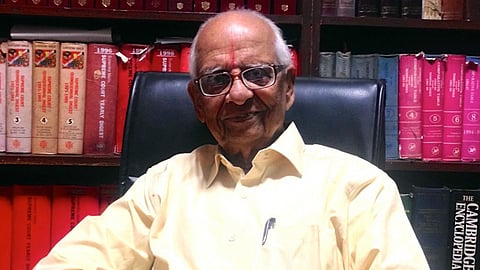
- Latest Legal News
- News
- Dealstreet
- Viewpoint
- Columns
- Interviews
- Law School
- Legal Jobs
- हिंदी
- ಕನ್ನಡ

A hot cup of filter coffee greets me, as I begin the interview with one of the legends of the Bar, K Parasaran. Moving from Chennai to Delhi to take up the post of Solicitor General, he was made the country’s Attorney General in 1983. Turning eighty-seven this October, the senior counsel speaks about his early years in the profession, his role as a law officer, and the various changes that sculpted the Bar and Bench over the years.